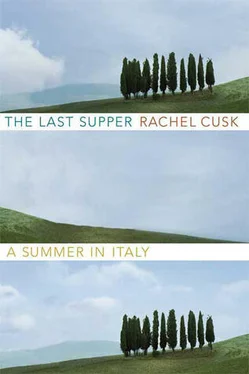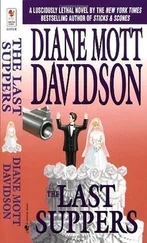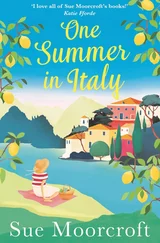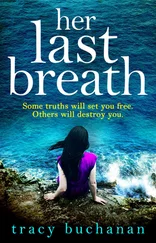The children are playing Hamlet . One of them is Ophelia; the other is the prince. They have wrapped themselves in swimming towels tied at the shoulder, like togas. Come here Ophelia! commands the prince. Ophelia declines. I don’t like you anymore, she says. Hamlet says that he’s going to tell his mother. Fine, says Ophelia, disgustedly. Later Ophelia is discovered lying flat on her back in the pine needles. Help! she says, I can’t swim! Hamlet is beside himself. He claws the floor of the glade in despair. Afterward he decorates her recumbent form with dead eucalyptus leaves.
We go to a little restaurant in the dark fields near the bay, where they give us frito misto in paper cones and Greco di Tufo wine, pale and chilled as an icicle. We walk on the beach in the spectral silver light of the sea. We cram into Tiziana’s tent. It isn’t so bad. Its insubstantiality is strangely gratifying, for it makes manifest our determination to economize. The pitch costs fifteen euros a night. Our boat back to England is booked for nine days hence. I wonder whether we could stay here until the day before, and then drive nonstop to Dieppe. I make pillows for the children out of folded-up clothes. They put on their pajamas in the dark. It is so hot that they don’t want any covers. We have no torch: there will be no reading. Instead I tell them the story of Twelfth Night .

The next day we walk to the end of the bay, where there is a little settlement of low white cottages, and a jetty with a handful of fishing boats tethered along its side. In the shallows, a group of old women sit playing cards. Their chairs and card table stand in six inches of water, and they swirl their veined, swollen feet abstractedly in the clear sea while they play. The waves are just ripples here, long, fine curves of silver that peal soundlessly one after another onto the sand, but sometimes a bigger wave comes, and the women lift up their skirts and laugh.
We walk past the cottages and along a path that leads around the rocks at the head of the bay. The rocks are flat and white: the sea is turquoise-colored here, and so clear that the bottom of the deep, shelving white valley of rock with its darting fish and fine, fern-like plants can be seen from the edge. The water in the bay is warm, and brown with leaves and matted balls of needles from the pinewoods, but here there are sea urchins, blood-colored, like rubies on the white rocks. The underwater valley looks as cool and mysterious as if it were made of glass. Sunlight hangs in liquid shapes above its crenellated ledges. It is hot, out here on the headland. There is nothing here. There is no shade. We scrutinize the rocks where they meet the water, trying to establish a way in. We would have to jump, right over the sea urchins that encrust the shore and into the deeper section, where the fish move far below, winding through clear columns of shadow and light.
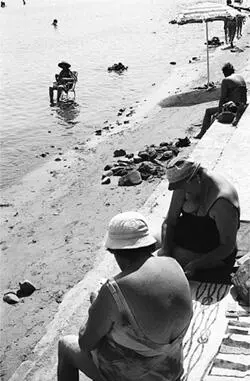
The children are nervous. They do not want to jump. The sea urchins frighten them. They have an instinctive terror of nacreous bodies that wait, unseen, in the water; of stings administered silently and without warning. It has taken them so long to establish that the world is predictable, that its elements are fixed, that its properties interrelate reliably: they will not easily forget their fear of the unknown.
I take a few steps back, and then run forward and hurl myself into the water. It was easy: I am in the deep part, swimming with the fish in regions of exquisite turquoise coolness. I tread water and look back to shore. Ophelia is having none of it. She has withdrawn from the waterside, and is sitting on a rock with her chin in her hands. But Hamlet is tempted. She stands on the brink, in an agony of indecision. She is a daredevil: she cannot bear to feel afraid, and so she is inexorably drawn to do the things she fears the most. I admire her for this trait, which I conspicuously lack, but I have failed to understand its significance, which is that she experiences more than the common portion of terror, not less. She is more frightened than Ophelia of jumping into the water, and for this reason she will force herself to do it, while Ophelia sits calmly on her rock. Her father tells her not to try: he thinks it is too dangerous after all. It was easy enough jumping in, but it is unclear how we are going to get out. But it is too late; Hamlet comes flying through the air, her fists clenched into balls at her sides, and thuds into the water beside me. She springs up again, victorious. For a while we swim around, but there is nowhere to put our feet. The water is deep here. I begin to see the difficulty. We swim toward the rocks and through the crystalline water Hamlet sees the sea urchins, plump and glossy as blood clots, as if through a magnifying glass. The game is up: there in the water she flings her arms around my neck and sticks there like a limpet. She is heavy and I thrash about, trying to stay afloat. I ask her to let go and she shrieks and tightens her grip. On her rock, Ophelia begins to cry. I realize that one way or another I am going to have to get us out. I reach the rocks with Hamlet around my neck. Ophelia’s crying is getting on my nerves. There is only one way back to the shore, which is to clamber up the shelving rock among the sea urchins. From a distance the rock looks smooth but close up it is chaotic and sharp. I cut my hands and feet, and so does Hamlet. We stagger out into the dry afternoon with its high white sun. Hamlet and Ophelia cry uncontrollably. I am angry. I don’t know why, but I am angrier than I have ever been. I shout at them while blood runs down my legs. There are one or two Italians nearby, sunning themselves on the rocks. They look at us in consternation. They look at me. They know that the whole thing was entirely my fault. I am ashamed. I try to stop shouting but I can’t. I can’t.

We roam in the soughing pinewoods. We lie by the water, talking. We peer at the Etruscan tombs, following dusty paths through fields of dry grass. There is the Tomb of the Chariots and the Tomb of the Attic Vases and the Tomb of the Funereal Couches. There are dome-shaped tombs like dirt-colored igloos in the grass. We stare at them but we do not understand them: they are the core, the impenetrable kernel of this land’s mystery.
For four nights we sleep in the tent on its dry, rustling carpet of leaves. The children sleep deeply, soundlessly. We lie close together. In the darkness there is no perspective. It is like being held in the palm of a hand.
All day and all night I am half asleep and half awake. I am thinking about the future, though these thoughts are wordless and indistinct. They are like running water, a single entity. They pour toward an edge, a precipice, and tumble over the side. I do not want to go home. More precisely, I don’t know how to go home. My consciousness runs swiftly, smoothly toward this edge and then tumbles over, a cataract. I need to find a path down out of these months in Italy. They stand behind us like mountains. To have climbed them, to have known their paths and peaks: in certain lights it has seemed that these are the dimensions of life itself, but lying in the tent I know this isn’t so. Life could become flat again, ordinary again. It is desire that is big and grand and treacherous; desire, not life. I remember the Apuan mountains, their abysses, their glinting white fastnesses of rock: we will pass them on the road home and look up from the flatlands at their awful faces. We will remember that we were once there. But we will pass them. We will stay on the road.
Читать дальше
